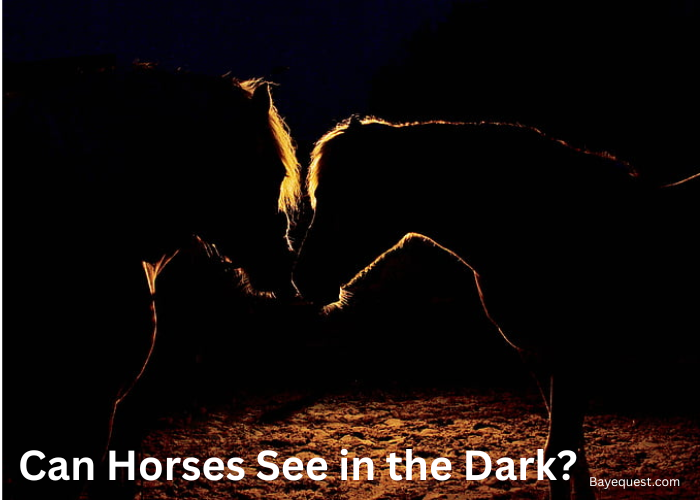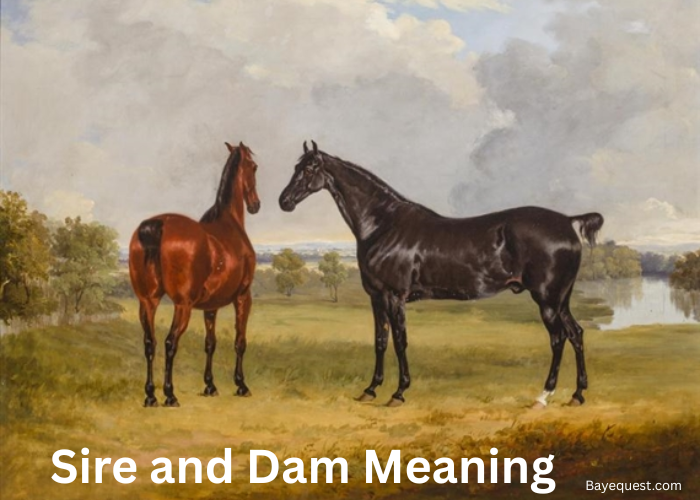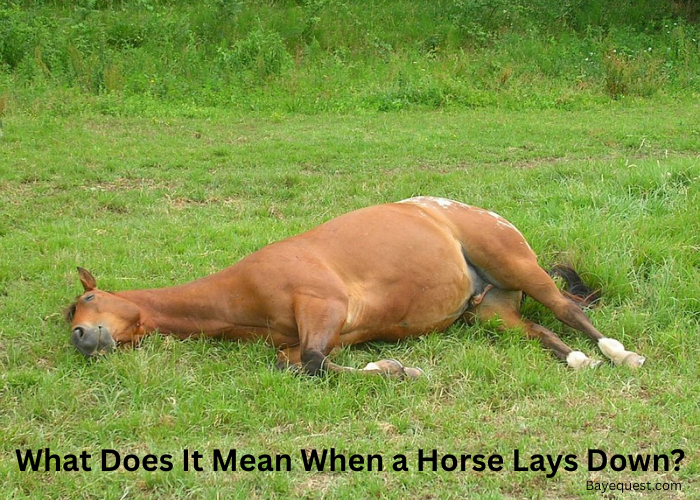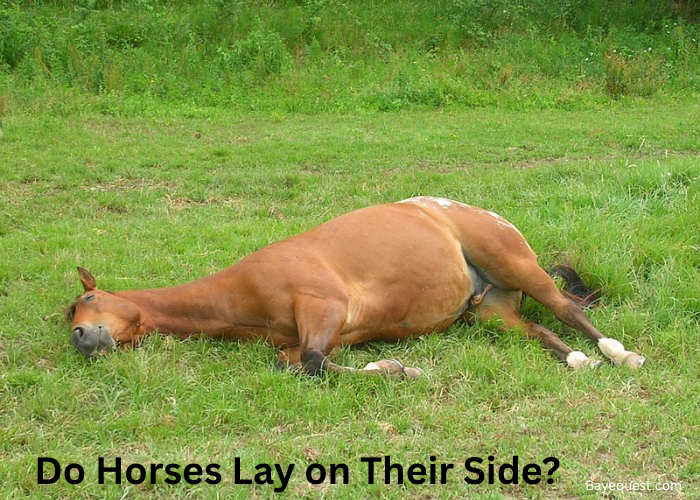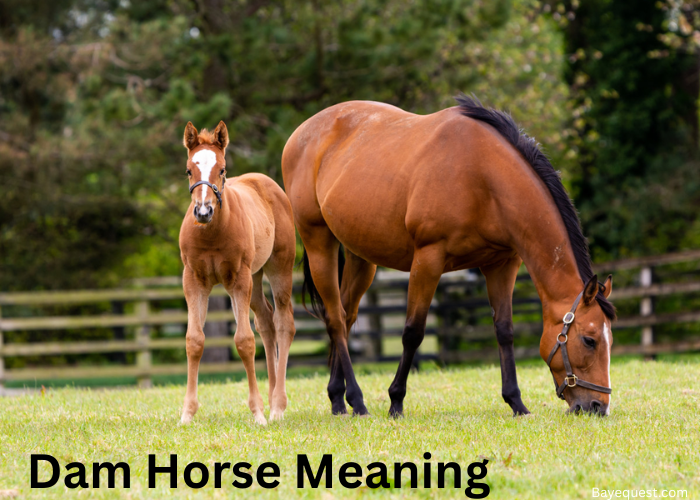Ever watched your horse move calmly under the moonlight and wondered how well they can see?
It almost seems magical – the way they navigate the pasture long after the sun has gone down. But is it really magic, or do horses have a secret edge when it comes to seeing in the dark?
We explore all that in this post, what their eyes can do, what they can’t, and how this affects their safety, riding, and care at night.
By the end, you’ll understand exactly how much your horse can see in the dark, and what you can do to make those nighttime moments safer for both of you.
Can Horses See in the Dark? Key Takeaway
Yes, horses can see quite well in the dark, much better than humans. Their large eyes, wide pupils, and a reflective layer called the tapetum lucidum allow them to use even small amounts of light, such as moonlight, to move safely. However, they can’t see in total darkness and need time to adjust when moving from bright to dim areas.
How Do Horses See? Horse Vision Explained
A horse’s eyes are among the largest of any land animal. That alone gives them an incredible advantage in gathering light. The bigger the eye, the more light it can capture – and that’s key to seeing in low light.
Moreover, unlike humans, a horse’s eyes are positioned on the sides of its head. This gives them a much wider field of view, up to 350 degrees. They can see nearly everything around them without moving their heads.
It’s a built-in survival feature that helps them spot predators approaching from almost any direction.
Things get even more interesting inside the eye. Horses have large pupils that open wide to let in as much light as possible. Their retinas also contain more rod cells than cone cells.
Rod cells are highly sensitive to light and motion, making them ideal for seeing in dim conditions. Cone cells, on the other hand, detect color. Horses have fewer of those. That’s why they don’t see colors as vividly as humans.
But what really boosts a horse’s night vision is a special layer called the tapetum lucidum, which sits behind the retina and acts like a mirror.
When light enters the eye, this layer reflects it through the retina, giving the eye a second chance to capture it. It’s the same reason a horse’s eyes sometimes “glow” when you shine a light on them at night.
However, there’s a catch. While horses can collect light efficiently, their eyes take longer to adjust between bright and dark environments.
That’s why moving from a well-lit barn into the darkness of a pasture can momentarily confuse them. They might hesitate or act unsure until their eyes adapt.
Understanding how your horse’s eyes work helps explain a lot about their behavior at dusk or in dim barns. Their vision isn’t about seeing sharp details; it’s about detecting movement and contrast. And that’s exactly what helps them stay alert and safe, even when light is fading.

Can Horses Really See in the Dark?
The short answer is yes. But not in total darkness. Horses have very good night vision, but they still need some light to see, like moonlight or the soft glow of a barn lamp.
Their large pupils and reflective eye layer allow them to make the most of even the tiniest light. In dim conditions, they can see far better than humans.
While you might see only vague shapes, your horse can make out outlines, movement, and changes in shadow. That’s why they seem so confident walking around the pasture when you can barely see your hand in front of you.
However, horses don’t see sharp details in the dark. Their night vision is tuned for survival – spotting motion, not reading fine print.
They can sense a rustling bush or a moving figure long before you notice anything. But they might not recognize it clearly until it gets closer.
Think of it this way: humans see better during the day, but horses have the advantage when night falls.
Compared to predators like cats or owls, though, their night vision isn’t quite as advanced. Predators have eyes designed purely for nighttime hunting.
Meanwhile, horses balance day and night sight since they graze in both.
It’s also worth noting that horses depend on memory and other senses in the dark. If they know their surroundings well, they can move confidently even with minimal light.
You might see this when they walk straight to their favorite grazing spot or water trough at night without stumbling.
Still, complete darkness is different. If there’s absolutely no light, even horses can’t see. That’s when they rely on their keen hearing and sense of smell to stay oriented.
So yes, horses can see impressively well in the dark – just not perfectly. Their vision is built for safety and awareness, not fine detail. And understanding that difference helps us handle them better after sundown.
How Well Can Horses See Colors in the Dark?
Unfortunately, horses don’t see the world in full color the way we do. Their eyes are built differently, with fewer color-detecting cells, called cones.
This means they see a limited range of colors, mostly shades of blue and yellow. Reds and greens tend to blend into grays or browns for them.
During the day, that limited color vision doesn’t bother them much. But at night, things change even more.
In dim light, even those blue and yellow tones start to disappear. The world turns into a landscape of shadows, contrasts, and movement rather than vivid color.
That’s why horses rely more on brightness and contrast than on color to identify objects during the night.
A pale fence or white bucket might stand out clearly against a dark background, while a red or green one might seem invisible.
For riders, this is important to remember. A brightly colored jump might be easy for you to see, but it may not look the same to your horse, especially in fading light.
This difference in color perception can sometimes cause hesitation. A horse might approach a dark puddle or shaded area and pause, unsure if it’s a hole, shadow, or something solid.
They’re not being stubborn, they’re simply trying to make sense of what they see.
So, while horses can detect some color, they don’t depend on it much, especially at night. In low light, their eyes focus on patterns of brightness, movement, and shape.
That’s what helps them move safely and confidently, even when the world turns gray.

Factors That Affect a Horse’s Night Vision
Not all horses see equally well at night. Several factors influence how clearly your horse sees when the light is low.
Understanding these can help you keep your horse comfortable and confident after dark.
Age
Just like humans, a horse’s eyesight changes with age. Older horses often have reduced night vision due to natural aging of the eye.
The lens becomes less clear, and the retina less responsive. So, if your older horse seems hesitant at night or startles more easily, it might not be fear, just weaker vision.
Eye health
Any eye problem can affect how well a horse sees in dim light. Eye conditions such as cataracts, corneal scarring, or uveitis can blur vision and make night navigation more difficult.
Regular eye checks are important, especially if your horse bumps into things or reacts oddly in low-light conditions.
Ambient light
Horses see best when there’s at least a little natural or artificial light, such as moonlight, a soft barn light, or even stars on a clear night.
Too much light, however, can work against them. Bright floodlights create glare or deep shadows that confuse their eyes.
Sudden changes in light
Horses’ eyes adjust slowly when moving from bright areas to dark ones. Therefore, when leading a horse out of a well-lit barn into a dark pasture, give them time to adapt.
Their pupils need a few minutes to dilate and let in more light. Rushing this process can make them nervous or hesitant.
Individual differences
Just as some people have sharper eyesight than others, so do horses. Breed, genetics, and even past experiences can play small roles in how well they handle dim light.
For example, horses used to nighttime turnout often become more confident after dark simply through familiarity.
Knowing these factors helps you create the right environment, allowing your horses to use their natural night vision to stay safe and calm in the dark.
How to Care for Horses at Night
Now that you understand how horses see and how their vision works in dark conditions, it should be easier to care for them at night. Consider the following;
Use soft, even lighting
Bright, harsh lights can startle horses and create deep shadows that confuse them. Instead, use soft, steady lighting that spreads evenly across the area.
Warm, low-intensity bulbs are best for barns and aisles. Avoid lights that flicker or hum; horses notice those things more than we do.
Give their eyes time to adjust
When moving a horse from bright to dim light, always allow a few minutes for adjustment. Walk slowly and speak softly.
This helps them stay calm as their pupils dilate to take in more light. On the contrary, sudden movement or rushing can make them anxious or unsure.
Keep nighttime areas familiar
Horses rely on memory as much as sight in the dark. Thus, keeping things consistent helps them move confidently and prevents accidents.
Resist the urge to rearrange objects or equipment in areas where they walk at night.
Consider turnout lighting
If your horse stays outside overnight, a little ambient light helps. A distant yard light or gentle glow from the barn is perfect.
But avoid floodlights as they can attract insects and make shadows that appear threatening. Your horse’s eyes are sensitive enough to handle low light naturally.
Safety during night rides
If you ride or lead your horse after dark, use reflective gear on both you and your horse. A small, soft light or glow band makes you visible without blinding your horse.
Always start slowly so they can get used to the light conditions.
In a nutshell, it’s all about understanding your horse. Soft light, calm handling, and familiar surroundings go a long way in keeping them relaxed.
With a few thoughtful steps, your horse can move confidently and safely through the night.

Fun Facts About Horse Vision
Horses don’t just have big, beautiful eyes – they have some of the most fascinating vision in the animal world. Here are a few fun facts that show just how special their eyesight really is.
Their eyes are huge
A horse’s eyes are among the largest of any land mammal. Each one is about the size of a golf ball. That size helps them gather more light, which is why their night vision is so good.
They see almost everything around them
Because their eyes sit on the sides of their heads, horses can see nearly 360 degrees around. That means they can spot things behind and to the side without turning.
However, they do have two small blind spots; one directly in front of their nose and one right behind their tail.
Their eyes “glow” at night
If you’ve ever seen a horse’s eyes shine in the dark, it’s not your imagination. That glow comes from the tapetum lucidum, a reflective layer in the eye that helps them see better at night.
It’s the same feature that makes cats’ and deer’s eyes shine when light hits them.
They see the world differently from us
Horses see fewer colors and less detail than humans, but they notice movement much faster. A flick of grass or a shifting shadow catches their attention right away.
It’s part of what makes them so alert and sensitive to their surroundings.
Their eyes reveal their mood
A horse’s eyes can tell you a lot about how they feel. Wide, focused eyes show alertness or curiosity.
Soft, half-closed eyes often mean they’re relaxed or content. It’s another way their vision connects directly to their emotions and instincts.
FAQs
Do horses get scared of the dark?
Yes, some do, especially younger or less experienced horses. It’s not always the darkness itself that scares them. Instead, it’s the sudden movements or sounds they can’t see clearly. Familiar environments, calm handling, and soft lighting help them feel more secure at night.
Can I ride my horse at night safely?
Yes, with the right care, you can safely ride your horse at night. Stick to areas your horse knows well, ride slowly at first, and use reflective gear and soft lights so both of you stay visible. Above all, let your horse lead with their natural night vision. You’ll be just fine.
Why do my horse’s eyes glow in photos?
That glow comes from a special reflective layer in the horse’s eyes called the tapetum lucidum. It helps them see in low light by bouncing light back through the retina. When a flash or light beam hits their eyes at night, it reflects, creating that glowing effect.
Do some horses see better at night than others?
Yes, some horses see better at night than others. Factors like age, eye health, and even genetics have a big influence. For example, some horses naturally adapt faster to low light, especially those used to night turnout or trail rides after sunset.
Should I leave the barn lights on overnight?
Usually, no. You don’t need to leave the lights on. Horses rest better in low light or darkness, and their eyes don’t need much light to see. If you must leave lights on, choose soft, dim bulbs or motion sensors to avoid glare and disruption.
Can horses see in complete darkness?
No, horses can’t see in total darkness. They have excellent night vision, but they still need at least a little light, such as moonlight or a distant barn light. In pitch-black conditions, they rely on hearing, smell, and memory to find their way.
Can Horses See at Night? Conclusion
Yes. Horses have a remarkable ability to see in the dark – far better than humans ever could. Their large eyes, wide pupils, and reflective eye layer help them make the most of even the faintest light.
Still, they can’t see in total darkness, and sudden changes in lighting can momentarily confuse them.
Understanding these differences helps us care for them more thoughtfully. Gentle lighting, patience, and familiar surroundings go a long way in keeping them calm and safe after sunset.




